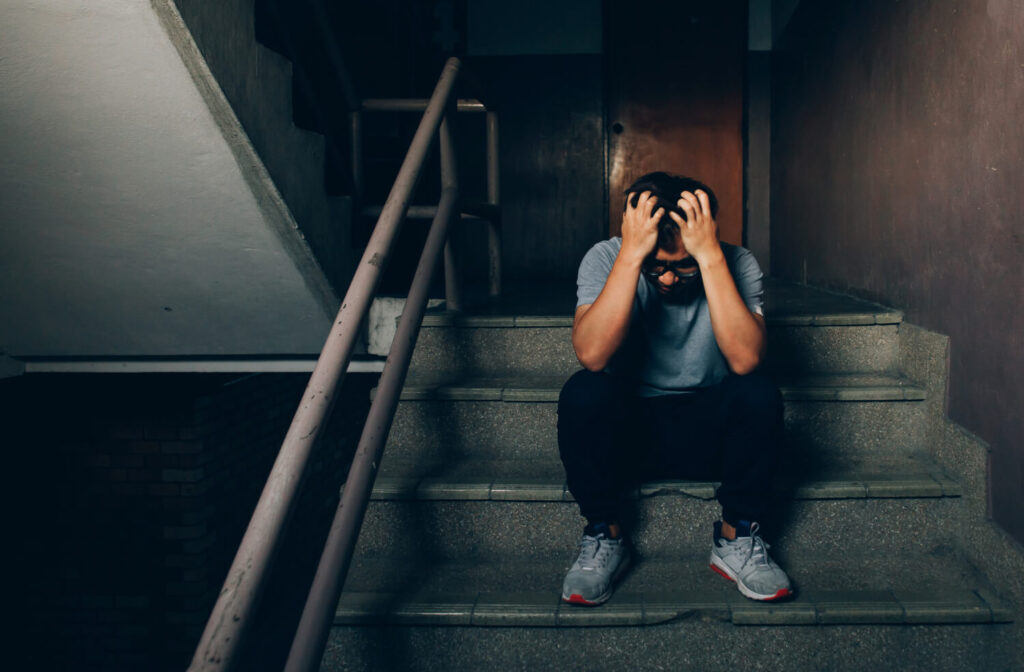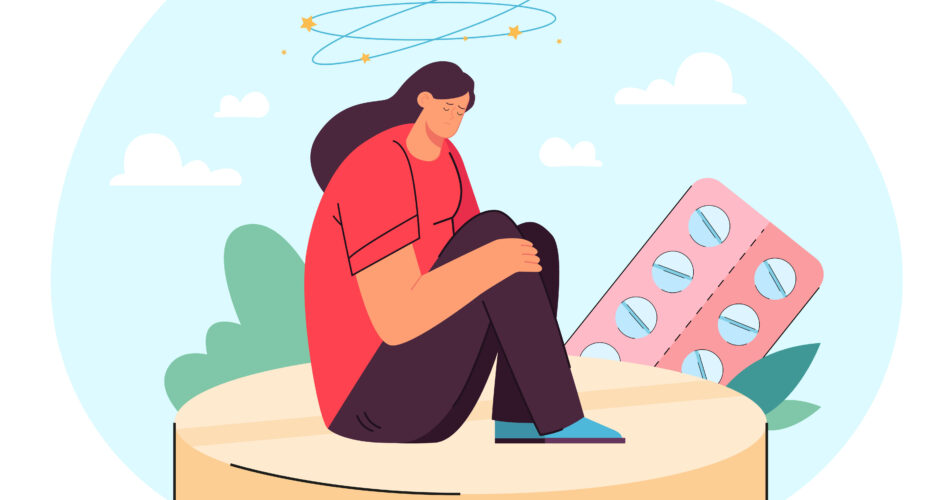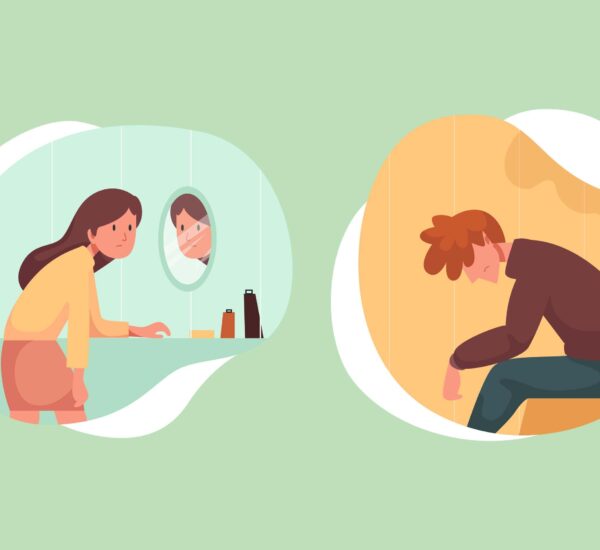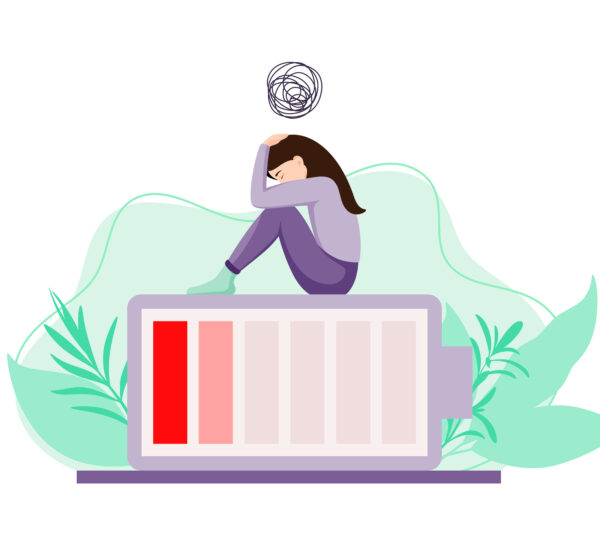When treating any form of disease, it is always important to follow the necessary steps to achieve healing. That also applies with depression, which means knowing the correct depression treatment is a must. Unfortunately, most patients tend to disregard their symptoms, which means they haven’t had a health check up yet.
This situation happens more than you think due to the stigma about mental health. Most people categorize the illnesses involving mental health as weaknesses, which is a wrong analysis of the situation. Patients with mental illnesses must learn to accept their condition and know to seek help to better manage their health.
In this blog, we’ll give you a glimpse of the suitable treatment options for a patient with depression. No matter what type of depression you’ve been diagnosed with, you can rely on these treatments to manage your condition. Although, take note that the duration and dosage of medication will not be the same for everyone. It will still depend on the severity of your current condition. That’s why it is important to follow the recommended form of treatment by a health care expert. Let’s begin the discussion below!
Understanding Depression
Depression is a mood disorder that causes persistent feelings of sadness, hopelessness, and a loss of interest in activities. It affects how a person thinks, feels, and behaves, and can interfere with their daily functioning. While occasional feelings of sadness are a normal part of life, depression is different and usually lasts for prolonged periods.

There are several types of depression, which can vary from mild depression to severe depression. Here are some of the known types of this mental illness:
- major depressive disorder (MDD) or clinical depression
- persistent depressive disorder,
- seasonal affective disorder (SAD)
- postpartum depression.
These conditions are different in terms of the severity, length of effect, and other included aspects. For instance, among the types, only postpartum depression includes the factor of giving birth as its source of depression. Meanwhile, persistent depressive disorder is known for its mild yet prolonged effect on one’s mental health.
You see, each of the conditions has one thing in common, which is affecting the daily life of the patient. They will have noticeable changes in mood, sleep patterns, decreased energy levels, and so on. Unfortunately due to severity of the condition and not receiving proper care, it can lead to unfortunate outcomes like suicide. Thus, the importance of understanding the concept of depression to handle and manage the condition better.
When to Seek Professional Help
When a patient suffers from health problems like depression, it is important to meet with professionals in the medical field to address the condition and learn about its effect on overall wellbeing. It is important to understand that this medical condition can slowly corrupt the patient, affecting their mood, relationships, wit, and even their will to live. Thus, making it one of the most alarming mental health conditions that can result in disability according to the World Health Organization.

With this alarming nature of illness, it is no surprise that many individuals have variations of experiences that can be associated with limited mobility due to heavy emotions. In short, life events begin to be meaningless due to difficulty in handling the situation and its progression.
So, if you suspect you are experiencing such changes too, and suffer from its effect, it’s time to meet with health care professionals.
Finding the Right Healthcare Professional
When searching for a healthcare provider, consider their experience and specialization in treating depression. Look for professionals who offer a range of treatment options, including therapy and medications, and who are willing to work collaboratively with you to develop a personalized treatment plan.
Moreover, proximity is also a great reference when it comes to finding a doctor for your condition. Trusting the psychiatrists near you means you can reach out to them immediately, especially when emergency situations occur like a need for a talk therapy.

Meanwhile, considering the convenience of their services is also important. That includes checking if they have a platform for seamless communication like online consultation tools. Having this option is essential as some patients value their personal space more, so this option helps them to open their minds and communicate more at home.
These are just some of the potential ways on how to find a credible doctor for your needs. Remember, you are an active participant in your treatment, and finding the right healthcare professional is an important step towards managing your depression effectively.
Different Depression Treatment Options
Once you’ve been correctly diagnosed with a type of depression, receiving the possible treatment plan is the next step. During this stage, it is important to take note that variations of treatment can be proposed, especially when treating different levels of depression. In some cases, doctors recommend their patients to be an in-house patient for a thorough observation. On the other hand, patients with less severity of depression can start their treatment at home and are required to attend therapy sessions instead.

Aside from those options, there are still other forms of treatment that can be complicated to understand. Whatever you receive, it’s best to ask questions and clarify everything during the consultation with the doctor. That way you can understand the effectiveness of such methods and why it is chosen for managing your condition.
Here are some of the known depression treatment options:
1. Therapy
Cognitive Behavioral Therapy (CBT)
The first therapy is known as cognitive behavioral therapy (CBT). It is a widely recognized and effective form of therapy for depression. This therapy focuses on the relationship between thoughts, emotions, and behaviors, helping individuals identify and challenge negative thoughts and beliefs that contribute to their depressive symptoms. .
CBT also helps individuals develop healthy coping skills and strategies to manage stress, improve problem-solving abilities, and enhance communication and relationships. This therapy approach is typically structured and time-limited, with individuals actively participating in their treatment through homework assignments and practice outside of therapy sessions.
Interpersonal Therapy (IPT)
Meanwhile, interpersonal therapy (IPT) is another effective form of therapy for depression. It focuses on the relationship between a person’s depressive symptoms and their interactions with others. IPT aims to improve interpersonal relationships and address the specific interpersonal problems that contribute to depressive symptoms.
This therapy approach typically involves identifying and working through four problem areas: grief and loss, role transitions, interpersonal disputes, and interpersonal deficits. Through the therapeutic process, individuals develop communication skills, problem-solving strategies, and coping mechanisms to manage interpersonal challenges and enhance their overall well-being.
Psychodynamic Therapy
Another form of therapy as depression treatment is psychodynamic therapy. This form of therapy explores how past experiences, particularly childhood experiences, shape a person’s thoughts, emotions, and behaviors. The therapy focuses on uncovering unconscious patterns and unresolved conflicts that may contribute to depression.
Psychodynamic therapy aims to increase self-awareness and insight, helping individuals understand the underlying causes of their depression. By exploring and resolving these underlying issues, individuals can experience emotional healing and growth.
2. Medications
Selective Serotonin Reuptake Inhibitors (SSRIs)
On the other hand, we have the medication SSRIs as a possible depression treatment. Selective serotonin reuptake inhibitors (SSRIs) are a commonly prescribed class of antidepressant medications. They work by increasing the levels of serotonin, a neurotransmitter associated with mood regulation, in the brain.
It is often the first-line treatment for depression due to their proven effectiveness and relatively fewer side effects compared to other antidepressant medications. Commonly prescribed SSRIs include fluoxetine, sertraline, escitalopram, and paroxetine.
While SSRIs are generally well-tolerated, they can cause side effects such as nausea, insomnia, drowsiness, sexual dysfunction, and weight changes. It is important to consult a healthcare professional for a thorough evaluation and discussion of the potential benefits and risks of SSRIs in managing your depression.
Serotonin-Norepinephrine Reuptake Inhibitors (SNRIs)
Similarly, SNRI is another medication for depression that doctors might prescribe. Serotonin-norepinephrine reuptake inhibitors (SNRIs) are another class of antidepressant medications commonly used in the treatment of depression. They work by increasing the levels of both serotonin and norepinephrine, neurotransmitters involved in mood regulation, in the brain.
Common SNRIs are venlafaxine, duloxetine, and desvenlafaxine. These are particularly effective in managing depressive symptoms and are also approved for the treatment of anxiety disorders. They may be prescribed when SSRIs have been ineffective or caused intolerable side effects.
Like SSRIs, SNRIs can cause side effects such as nausea, insomnia, sexual dysfunction, and changes in blood pressure. It is important to discuss the potential benefits and risks of SNRIs with a healthcare professional to determine the most appropriate medication and treatment plan for your specific needs.
Tricyclic Antidepressants (TCAs)
On the contrary, doctors may also rely on depression treatment medication using tricyclic antidepressants (TCAs). It is an older class of antidepressant medications that have been used for many years. They work by increasing the levels of certain neurotransmitters, such as serotonin and norepinephrine, in the brain.
TCAs, such as amitriptyline, nortriptyline, and imipramine, are effective in managing depressive symptoms. However, they are generally reserved for individuals who have not responded to other medications due to their potential for more significant side effects. Common side effects involve drowsiness, dizziness, dry mouth, constipation, blurred vision, and weight gain.
Monoamine Oxidase Inhibitors (MAOIs)
Lastly, monoamine oxidase inhibitors (MAOIs) are a class of antidepressant medications that work by blocking the enzymes responsible for breaking down neurotransmitters such as serotonin, norepinephrine, and dopamine in the brain.
MAOIs, such as phenelzine, tranylcypromine, and isocarboxazid, are effective in managing depressive symptoms. However, they are generally prescribed when other medications have been ineffective or resulted in intolerable side effects, due to their potential for interactions with certain foods and medications.
3. Alternative Medicine Approaches
Herbal Supplements
In terms of alternative depression treatment, herbal supplements are an effective option. Herbal supplements such as St. John’s wort, SAMe, and omega-3 fatty acids, have been used as alternative approaches to manage depression. These supplements are believed to have mood-enhancing properties and may provide some relief for individuals with mild to moderate depressive symptoms. However, it is important to note that the efficacy of herbal supplements in treating depression is still being studied, and their safety and effectiveness may vary depending on the individual and the specific supplement.
It is crucial to consult with a healthcare professional before starting any herbal supplement, as they can interact with other medications and may not be suitable for individuals with certain health conditions. Additionally, using herbal supplements should be done in conjunction with other evidence-based treatments for depression, such as therapy and medication.
Acupuncture
Another form of depression treatment that is considered an alternative medicine is acupuncture. This approach involves the insertion of thin needles into specific points on the body. It is based on the principle that stimulating these points can restore the flow of energy, known as Qi, and promote healing and well-being.
While acupuncture is commonly used to manage chronic pain conditions, such as back pain and migraines, it has also been explored as a treatment option for depression. Some studies suggest that acupuncture may have a positive effect on depressive symptoms by balancing neurotransmitter levels and promoting relaxation.
Meditation
Additionally, meditation as a depression treatment is a mindfulness practice that involves focusing your attention and eliminating the stream of thoughts that may be causing stress and anxiety. It is often used as a stress reduction technique and can provide additional support in managing depressive symptoms.
Meditation can help individuals cultivate a sense of inner peace and calm, reduce stress levels, improve emotional well-being, and enhance overall mental health. By practicing meditation regularly, individuals may experience improvements in their mood, concentration, and overall quality of life.
4. Lifestyle Changes and Natural Remedies
Diet and Nutrition
Diet and nutrition play a crucial role in overall health and can also impact mental health, including depression. While there is no specific diet that can cure depression, adopting a healthy and balanced diet can provide essential nutrients that support brain function and promote emotional well-being.
Some dietary recommendations for managing depression include consuming a diet rich in fruits, vegetables, whole grains, lean proteins, and healthy fats. It is also important to limit the intake of processed foods, sugary snacks and beverages, and excessive caffeine and alcohol.
Additionally, certain nutrients have been associated with mental health and may be beneficial in managing depressive symptoms. These include omega-3 fatty acids, B vitamins, vitamin D, and magnesium. However, it is important to consult with a healthcare professional or registered dietitian before making significant dietary changes or starting any supplements.
Exercise and Physical Activity
Regular exercise and physical activity have been shown to have numerous mental health benefits, including reducing symptoms of depression. Exercise can increase the release of endorphins, known as “feel-good” hormones, and promote the growth of new brain cells, leading to improved mood and overall well-being.
Furthermore, engaging in regular physical activity, such as brisk walking, jogging, cycling, or swimming, can provide a natural antidepressant effect. It can also enhance self-esteem, improve sleep quality, boost energy levels, and reduce stress and anxiety.
Improving Sleep Patterns
Improving sleep patterns and practicing good sleep hygiene can significantly impact mental health and help manage depressive symptoms. Adequate and restful sleep is essential for overall well-being and can contribute to improved mood, concentration, and overall quality of life.
Some strategies for improving sleep patterns include maintaining a consistent sleep schedule, creating a sleep-friendly environment, practicing relaxation techniques before bed, avoiding stimulating activities and electronic devices before bedtime, and limiting caffeine and alcohol intake.
Stress Reduction Techniques
Stress reduction techniques can be valuable tools in managing depression and promoting overall mental well-being. Chronic stress can contribute to the development and exacerbation of depressive symptoms, and finding effective ways to manage stress can help alleviate these symptoms.
Some stress reduction techniques include deep breathing exercises, progressive muscle relaxation, meditation, yoga, and engaging in hobbies or activities that bring joy and relaxation. These techniques can help regulate the body’s stress response, promote relaxation, and enhance overall well-being.
Conclusion
There will always be a potential threat against your mental health. The best thing to do is to prepare yourself and make changes with your life to achieve healing.
Remember, seeking professional help when needed is a sign of strength and self-care. You deserve support and guidance on your journey to mental well-being. By prioritizing your mental health and exploring these treatment options, you are taking proactive steps towards a brighter and healthier future. It’s okay to seek help, and remember, you are not alone on this journey to recovery.
Depression Treatment Quiz
Test your knowledge about depression treatment options
Quiz Complete!
Great job completing the quiz!
Need Help with Mental Health?
Connect with licensed psychiatrists and mental health professionals through NowServing.
Find a Specialist


